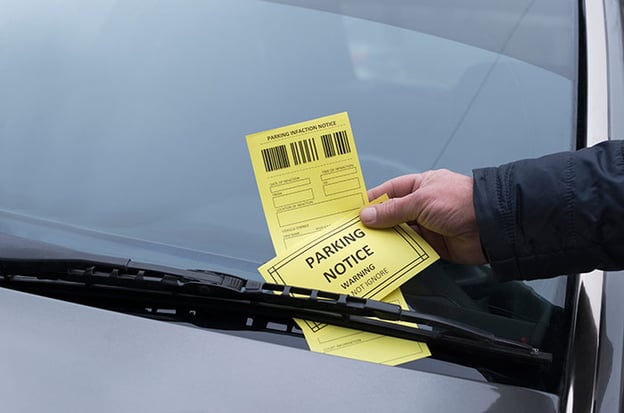The single biggest problem with HOA parking rules is getting residents to understand and follow the parking rules. For the most part, people park wherever is necessary or convenient. For example, if they have two cars and a one-car garage, they'll park in the driveway. When family visits, they'll park on the curb. If you want to control these behaviors, you need to provide clear parking rules and workable alternatives. You can't just tell people "don't park"; your HOA needs practical policies, sign postage, solutions, and resolutions to make it work.
How do you deal with the HOA parking problem? Let's take it to step by step.
What Keeps the Street Attractive
- Limiting Types of Vehicle
- Limiting vehicle sizes
- Limiting vehicles in driveways
- Limiting or time-limiting street parking
- Restricting branded vehicles
Parking rules exist for two reasons; to maintain property values and promote safe traffic flow. Specifically, this means limiting oversized vehicles, parking on the street and visibility, and redesigning vehicle branding.
Design Usable Parking Policies
First, design parking policies that make sense allow for normal residential behavior. There will occasionally be different cars and guests. Residents may sometimes need parking for oversized vehicles nearby.
Give Your Residents Enough Parking Space(s)
Limiting multi-bedroom households to a single parking space is usually seen as unreasonable. However, even apartments typically come with two parking spaces. So be reasonable about the use of driveways and the number of available parking spaces per home, even if your goal is to keep vehicles from parking curbside.
Provide Solutions for Guest Parking
What parking options are available for guests if the garage and driveway are occupied? Make sure you have solutions available for short-term and long-term guest parking. For example, provide a reasonable time limit for guests parking on the curb and the possibility of permitted guest parking nearby.
Reasonable Policies for Oversized Vehicles
Sometimes, residents will need to park oversized vehicles. Perhaps not in the street or for months, but moving trucks and family RVs pass through from time to time. Provide reasonable provisions for this and other common temporary and necessary parking violations.
Make the Parking Policies Known
Make sure your residents (and visitors) can see and understand the parking rules. Post them clearly in parking lots, at parking spots, and along streets. Use paint and signage to be abundantly clear about your parking policies and how to follow them safely.
Post-Clear Signs and Paint
Give residents and guests the best chance to see and understand parking regulations. Post signs. Mark parking places. Lay down paint indicating approved parking spots and areas. This way, anyone passing through can do their best to abide by the rules.
Include Reminders in Newsletters
Provide parking policy reminders in the neighborhood newsletter. Use diagrams and illustrations to make these reminders easy to skim and memorable.
Create a Parking Guide Sheet in the Front of your CC&R Packet
Make sure new residents know the parking policies right off the bat. Collate all your parking rules into one easy parking guide sheet and place it at the front of the CC&Rs provided to each new prospective homeowner.
Re-Post Parking Policies Before Holidays
As the holidays approach, re-post parking policies to remind everyone how to plan for winter and guest parking. This way, everyone has the best chance of avoiding violations or preparing for necessities.
Prepare a Good Parking Resolution System
When there are parking violations - or adverse conditions - have a system ready to find solutions and reach resolutions. Focus primarily on promoting safe parking compliance over revenue from parking fines.
Allow Temporary Permits and Passes
Most importantly, let your residents and guests apply for permits and get windshield tag passes. Then, if they need to park on the curb for a week or temporarily manage a commercial vehicle, a permit can smooth over the rough edges between the rules and reality.
Give Warnings and Provide Exceptions
Always issue a warning before leveling a fee. Let residents have a chance to move their vehicles and correct the violation with a greater understanding of policies. If there's an excellent and permit-able reason, provide exceptions and issue a red tag.




